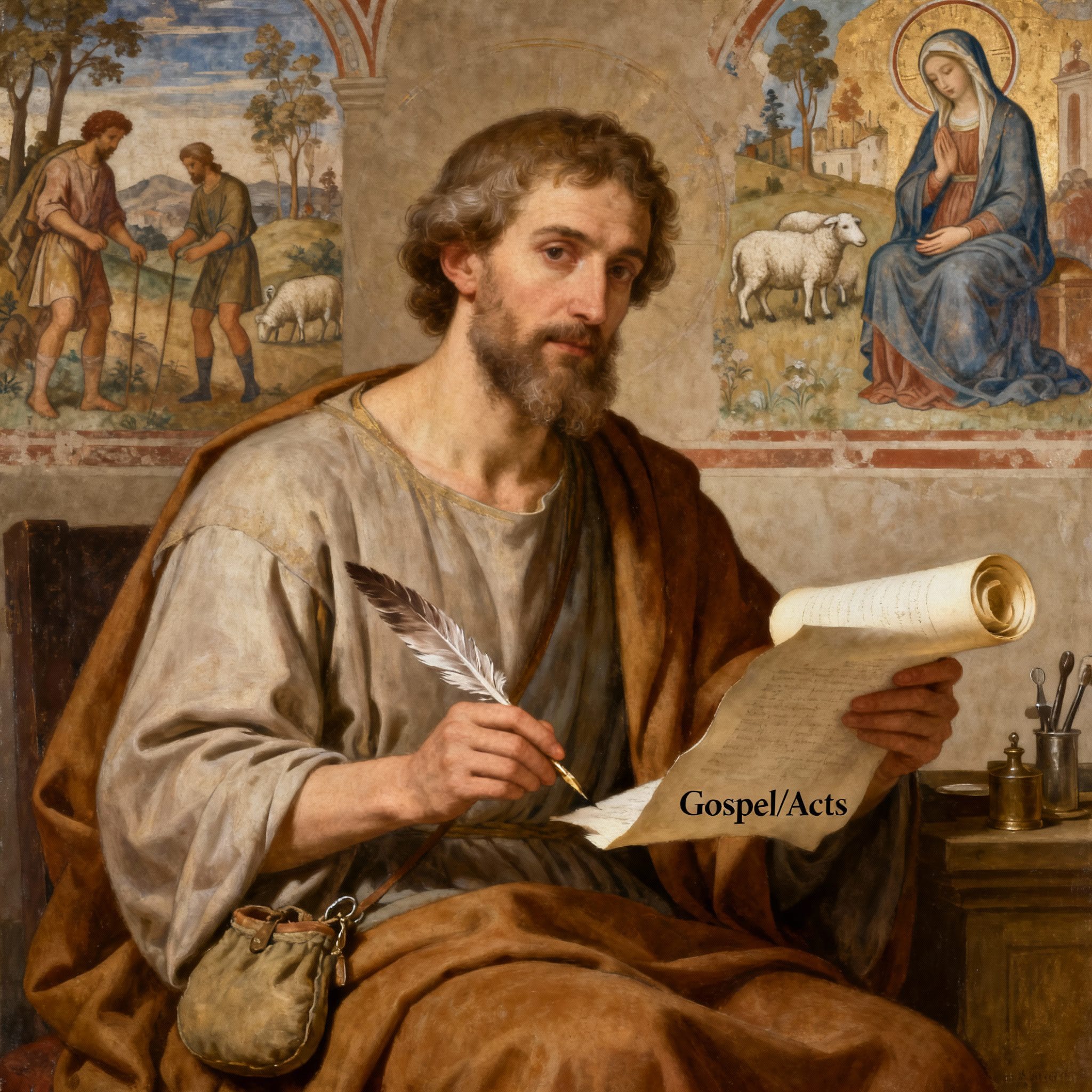Evangelist-physician of Antioch, companion of Paul; feast day October 18 in the Roman rite; singer of mercy, symbolized by the winged ox.
Author of the Gospel according to Luke and of Acts, he depicts the poor, sinners and the sick, with the perspective of a doctor and witness.
His pen collects the stories of Mary and announces a joy offered to all, in a careful and accessible Greek language.
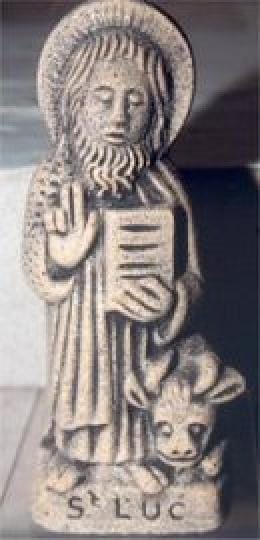
Start by opening the door and letting peace in, like the seventy-two sent by Jesus.
Today, the figure of Saint Luke reminds us that writing and caring are part of the same active mercy.
A Greek doctor who became a disciple, he followed Paul, listened to the witnesses and transmitted a Gospel that raised the wounded, like a Samaritan with a sure pen.
Its symbol, the winged ox, signifies service and sacrifice, while the liturgy proposes to announce the proximity of the Kingdom through concrete gestures.
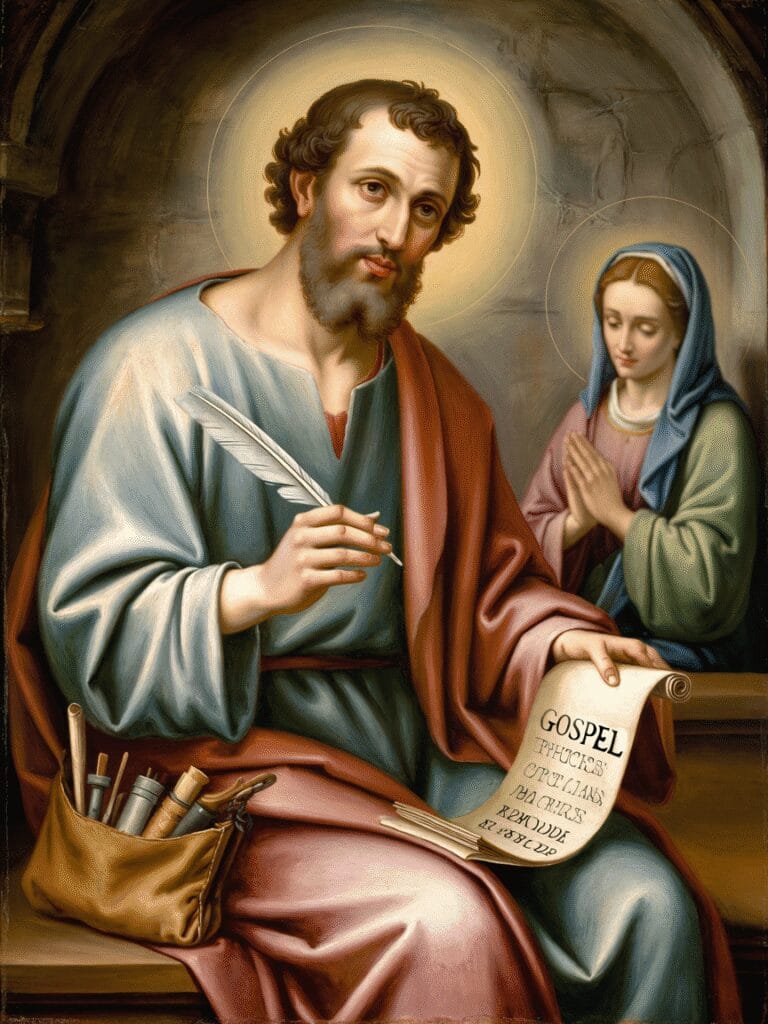
Biographical note
Born in Antioch, receiving a solid Greek culture and learning medicine: thus begins Luke's trajectory, according to ancient tradition.
Listening to Paul proclaim Jesus, he passes from idols to the living God and places himself at the service of the Gospel with the realism of a practitioner.
For eighteen years, he accompanied the Apostle of the Nations, sharing roads and perils until he reached Rome, where Paul suffered martyrdom around the year 67.
Luke then composed two works that became canonical: the Gospel according to Luke and the Acts of the Apostles, a major historical and theological diptych.
Concerned about authenticity, he says he studied his sources, like a doctor who questions people to establish a reliable diagnosis.
His Gospel is distinguished by a medical vocabulary and a marked attention to the poor, sinners and sick who approach Jesus.
It collects traditions about the childhood of Christ and the words of Mary, who "pondered all these things in her heart."
Luke's pen retains emblematic parables: the prodigal son, the good Samaritan, the lost sheep, the forgiven sinner, the good thief.
Dante calls him "scribe of Christ's mercy," a phrase that sums up his spiritual portrait and his pastoral legacy.
A cultured man, Luc handles Greek with dexterity and puts his skills at the service of a clear, precise and universal narration.
Very early on, he was chosen as patron saint of doctors, alongside Côme and Damien, because his faith transfigures the act of healing.
His memory remains linked to the mission of Paul and the birth of the Church, whose route he traces back to the first Roman stay.
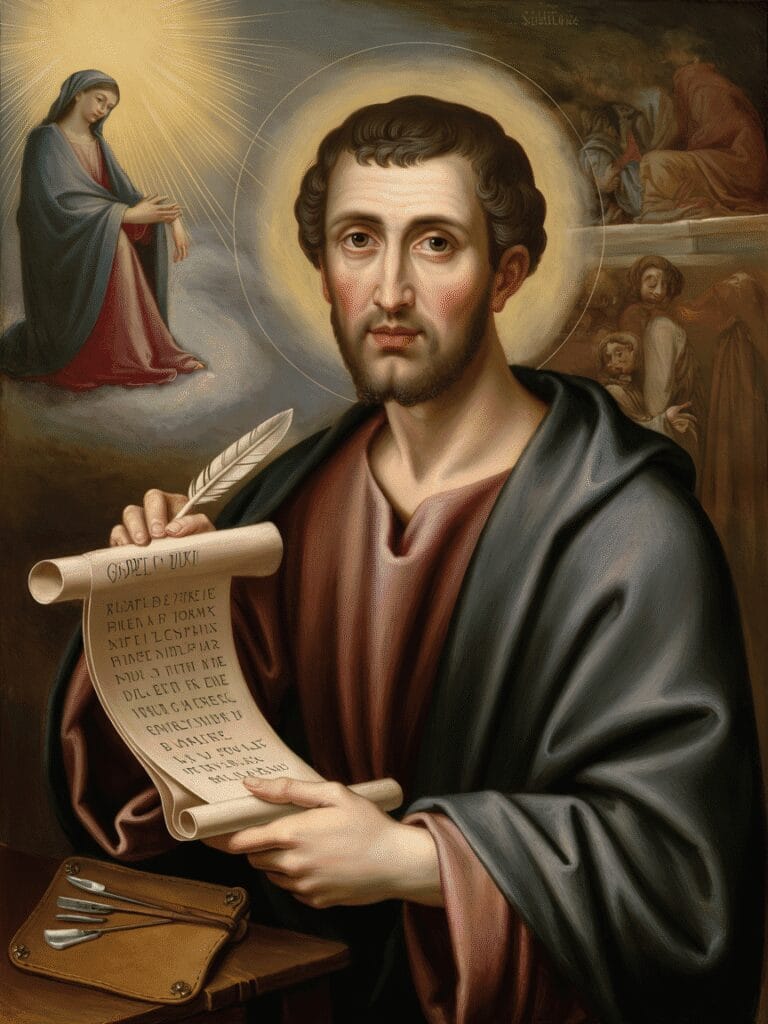
Legend
Christian tradition recognizes Luke as the author of the third Gospel and of Acts, which claim careful investigation among witnesses.
Several traditions associate him with the arts, stating that he painted images of the Virgin, hence his patronage of artists.
The liturgy and iconography represent it as a winged ox, a symbol of sacrifice and service to the Kingdom.
The prologue to his Gospel insists on the search for sources and the order of the narrative, a sign of a view formed by clinical practice.
The Lucanian narrative values incarnate mercy: healings, meals, forgiveness, encounters where dignity is restored by the Word.
Luke's own parables have shaped the Christian and social imagination, inspiring diakonia, hospitality and restorative justice.
Paul's accompaniment gives Acts a missionary perspective, from Jerusalem to Rome, where the Gospel meets the nations.
Thus, the pen and stethoscope become emblems: the truth is verified at the bedside of the wounded, and faith is written to the rhythm of the steps.
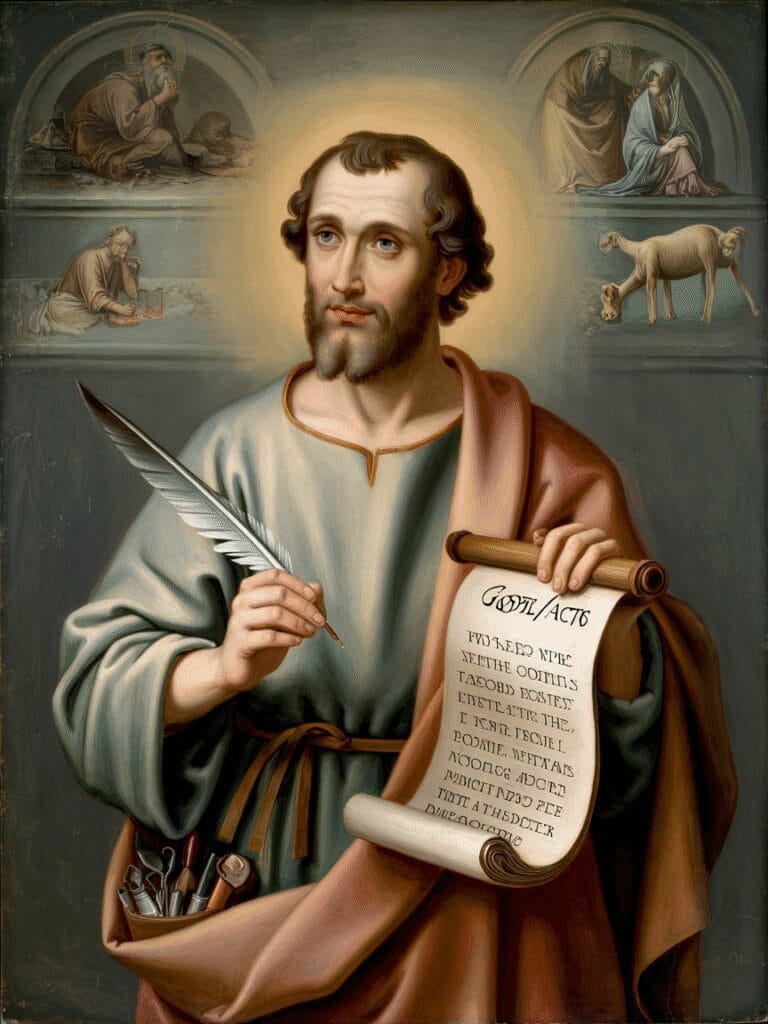
Spiritual Message of the Day
Receiving peace, healing wounds, announcing the Kingdom: this is the triptych proposed by the sending of the seventy-two.
The harvest is abundant and urban life tires hearts, but mercy opens discreet and tenacious paths.
The doctor's lamp speaks of attention, and the evangelist's pen recalls the memory of God's actions in history.
To learn from Luke is to listen, to discern, and then to act without delay, offering words of peace and sober hospitality.
Today, a gesture, a visit, a prayer can lift up a neighbor, and say gently: “The kingdom of God has come near.”
Prayer
Lord Jesus, through the intercession of Saint Luke, grant us an attentive heart that listens before speaking and consoles before judging.
Grant the grace of mercy, strength in weariness, and fidelity in discreet service to the poor and the sick.
Send your Spirit so that peace may cross our thresholds and healing may become a sign of your near Kingdom.
Make our homes places of hospitality, and our words remedies that do not hurt.
May the example of Luke, doctor and evangelist, guide our hands and enlighten our steps today.
To live today
- Say "Peace to this house" as you enter someone's home, then listen for ten minutes without interrupting.
- Visit or call a sick person, and offer concrete and time-limited help.
- Ten-minute lectio on Luke 10:1-9, noting a verb to put into practice.
-
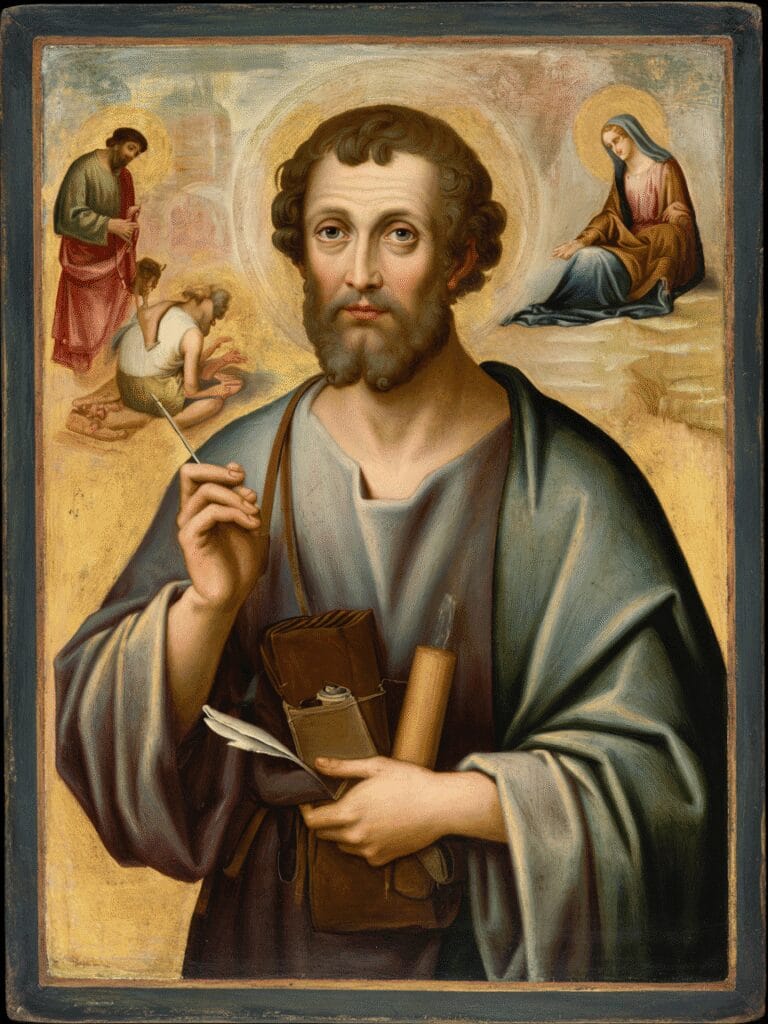
Memory
The feast of Saint Luke is celebrated on October 18 in the Roman rite, with an emphasis on mission and healing.
Its symbol of the winged ox appears in mosaics, stained glass windows and gospels, recalling sacrifice and service.
Hospitals, associations and brotherhoods of caregivers chose him as their patron, a sign of a professional and spiritual heritage.
Liturgical memory highlights his writings, notably the childhood stories and the parables of mercy.
Thus, Luke's pen remains visible in sacred art and in daily diaconate.
Liturgy
- Readings/psalm: 2 Tim 4:10-17b; Ps 144(145):10-11, 12-13, 17-18; Luke 10:1-9; “The harvest is plentiful…”
- Song/hymn: Vespers Antiphon “Blessed Saint Luke! Your Gospel reveals to us the mercy of Christ.”


